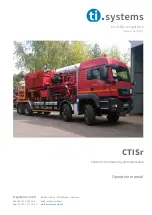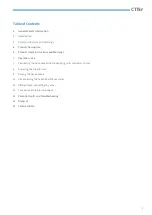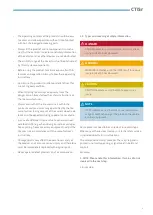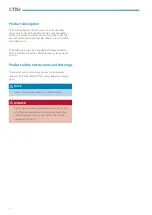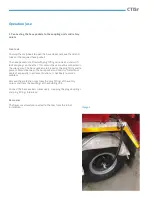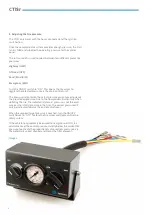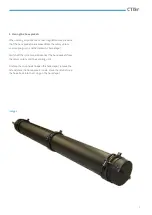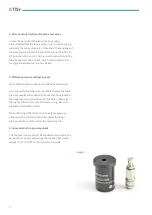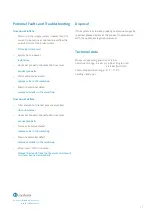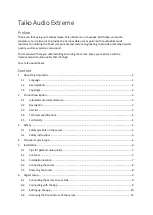
4
General Safety Information
1.
Introduction
Dear Customer,
You have purchased a product that conforms to the latest
state of the art. Please make sure to install, use and
maintain it as detailed in these operating instructions to
provide you with years of reliable use.
The product as supplied meets all functional and quality
requirements. In order to maintain its state and ensure
risk-free operation, you as the fitter and / or user will need
to read and understand these instructions.
If you have any queries please contact:
ti.systems GmbH
Welserstraße 1
|
41468 Neuss
|
Germany
tel: 02131. 1 53 18–0
mail: info@ti.systems
1.1. Copyright
These operating instructions are a publication of
ti.systems GmbH. All rights, including translation, are
reserved. No part of these instructions may
be replicated in any form or stored in data processing
systems without the written consent of the publisher.
Reproduction in full or in part is not permitted. These
operating instructions reflect the current technical
specifications at the time of printing. We reserve the right
to changes in technology and equipment.
© Copyright 2016 by ti.systems GmbH
1.2.Intended use
The CTISr is intended to be used for inflation and deflation
of the tires of commercial vehicles or private expedition
vehicles with compressed air supply from the vehicle
compressor or a stationary compressor while the vehicle is
stationary and, if necessary, with the engine running.
Pneumatic tools may be operated additionally using the
separate coupling connector on the control box. Any other
use is not permitted and may cause damage to the
product. Do not inflate any other items.
Components of the system may not be transported in an
unsecured state in or on the vehicle. Do not modify the
product. Always follow the safety instructions!
1.3. Disclaimer
Defects caused by failure to comply with these operating
instructions will invalidate the warranty. ti.systems GmbH
takes no responsibility for consequential damage incurred
as a result.
2.
Safety Instructions and Warnings
2.1. Basic safety instructions
•
When carrying out work on the product, always secure
the vehicle against rolling away or tipping over. Switch
the engine off.
•
When carrying out work on the product, always secure
the product against unintentional restarting. If neces-
sary, switch off the product and / or disconnect it from
the power supply.
•
Always ensure secure positioning of the product when
carrying out work which cannot be performed from
the ground. Use steps and grips or handles where
available. If necessary, use suitable aids.
•
The product, or its parts, are permanently or tempora-
rily under pressure.
•
Hoses or pipes which come uncoupled under pressure
may whip and cause serious injury. When carrying out
work on the product, always ensure that the product
and its parts are not under pressure. If work without
pressure is not possible, take the recommended safety
precautions and wear the recommended personal pro-
tective equipment (PPE). Keep other people away
from the danger zone.
CTISr

